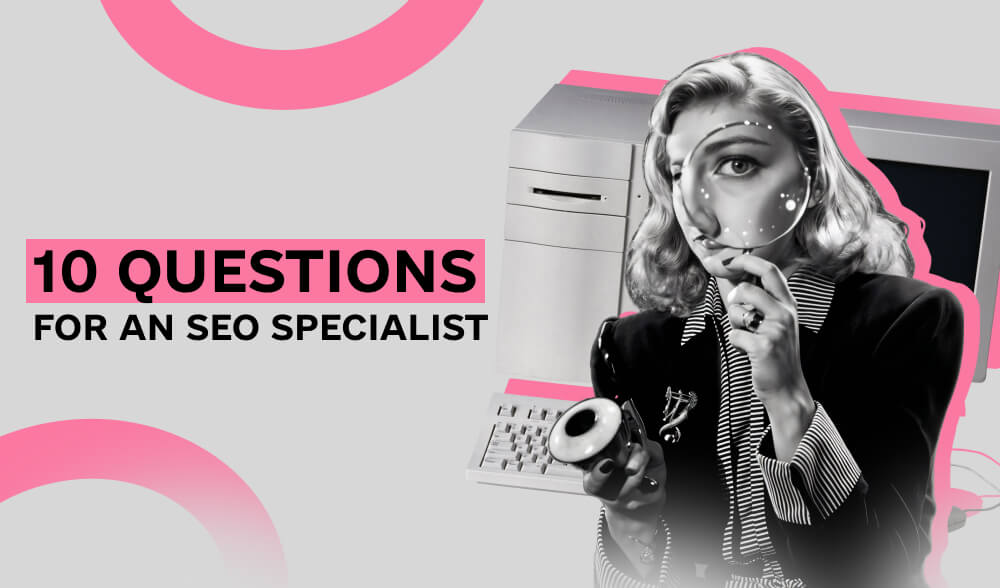They sit at SEO meetups, nod when they hear crawl budget and clustering, but then google it at three in the morning.
We’ve collected all the questions that newbies are afraid to ask SEOs and given them to a person who isn’t afraid to answer them directly.
We talked to Head of SEO Andriy Krasovsky, no foreplay, just facts and tips that will work if you want to develop in this direction.
How long do you really have to wait for SEO results?
It depends on the niche and geography. On average, it takes 3-4 months to see the first tangible results. But this is not a dogma.
You can speed up the process, for example, by using a drop-down domain that is at least 1 year old and has a similar theme. If you do the right redirects and linking, you can see the first results in 2 months.
Is it possible to bring a website to the top without link building? Without any link building at all?
Yes, it is possible. But it will be a long, complicated, and not always profitable way.
Under this condition, the site can be ranked due to its own structure, but such a strategy takes 1.5-2 years.
Why do SEOs often speak a language that even marketers don’t understand?
This is not slang, but technical English terminology from official Google documentation.
Crawl budget, canonical, cluster are precise terms. If you start translating them in different ways, there will be confusion. SEO is about structure, precision, and communication, and it’s better to stick to terms that everyone in the industry understands.
Algorithms change, AI helps, interfaces become more complex. But SEO remains SEO. It means strategy, consistency, and endurance.
One mistake of a beginner that breaks everything?
Poor niche analysis before collecting semantics.
A business may understand its product perfectly – but not its audience on Google. As a result:
The site exists. But it does not reach the top. Because the foundation was crooked from the very beginning.
Is it true that SEO is dead because AI is now deciding everything?
No, it’s not. SEO has changed, but it is not dead.
Yes, AI has automated some of the routine. But SEO is not just a set of technical operations. It is a separate branch of marketing that will live as long as it exists:
- niches that cannot be promoted through paid advertising
- the need for stable organic traffic
Nowadays, SEO has simply become different. But it hasn’t disappeared.
What budget do you need to get started with SEO without any fancy?
- For some projects, $3000/month for link building may be enough.
- For startups: $20-500k for 6 months – with a dedicated part for SEO.
It’s important to build a trusted link profile right away, especially if the goal is to build a brand quickly. SEO is long-term, so the foundation must be laid correctly.
How do you know if an SEO specialist or agency is really working and not just eating up your budget?
In 3 months, you should be able to:
If there have been no updates in the niche and the site is not hacked, there should be dynamics. If it is not, it is a question of processes.
I want to become an SEO specialist. What do I need to know?
Start by understanding the logic of the whole process:
- semantics
- site structure
- technique
- content
- linking
- link building
The next step is practice. Take a domain, install CMS (WordPress), create a website in a simple niche (cleaning, repair, psychology), write texts, see what is indexed. And only then move on to more complex tools.
What do you hate about your SEO routine?
Outreach for clients.
Writing to sites, waiting for a response, agreeing on the price and content, and then finding out that there is no budget and starting all over again.
It takes weeks, not days. Especially if the customer doesn’t act quickly. This is the slowest and most boring part of the job.
What rule in SEO never changes?
Three pillars of SEO that no update can break:
- On-Page SEO – content
Content should be of high quality, expert and with a clear structure. The technical part – speed, adaptability, indexing – is also critical. - Off-Page SEO – links
Links still work. But not just backlinks are important, but those that lead from relevant, trusted, and “live” pages. - Cover the entire topic
Google doesn’t like half-baked websites. If you enter a niche, cover it completely. Thematic clusters, structure, linking. And only then – the top.


